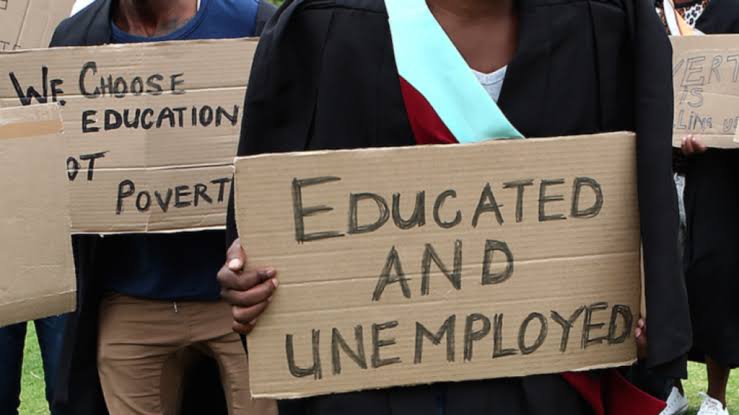A development economist and researcher, Dr Ishmael Iwara, has called for an urgent and strategic transformation of Africa’s higher education curriculum, stressing that such reforms are critical to addressing the continent’s deepening youth unemployment crisis.
In a recent study titled Graduate Employability in Africa: Reimagining the Rural-Based Entrepreneurial University Paradigm, Dr Iwara argued that outdated curricula and a disconnect between academic institutions and labour market demands are fuelling graduate unemployment across the continent.
He warned that unless universities overhaul their programmes and embrace a market-driven, entrepreneurial approach, Africa’s growing youthful population will remain trapped in cycles of economic hardship and joblessness.
“As institutions of higher learning, particularly universities, transition into dynamic entrepreneurial milieus, it is crucial to systematically eliminate antiquated qualifications from their curricula and comprehensively revise existing programs to align with modern benchmarks and societal exigencies.”
He added that institutions should also build strong public-private partnerships to facilitate seed funding and resource mobilisation for graduates.
This call comes amid worrying employment trends in South Africa, where the unemployment rate rose to 32.9 percent in the first quarter of 2025.
Figures from Statistics South Africa (Stats SA) show a loss of 291,000 jobs and an increase of 237,000 in the number of unemployed persons, pushing the total to 8.2 million. Youth unemployment stood at 46.1 percent, highlighting the disproportionate impact on young job seekers, while the expanded unemployment rate which includes discouraged work-seekers climbed to 43.1 percent.
He stated that the data reflects a broader pattern across African countries, where millions of university graduates remain unemployed despite holding tertiary qualifications.
Dr Iwara linked this trend to historical legacies and structural deficiencies in African education systems, particularly those rooted in colonial frameworks designed to limit intellectual and professional advancement.
He noted that the remnants of policies like South Africa’s Bantu education still influence current curricula, leaving graduates ill-prepared for today’s job market.
The expert explained that despite Africa’s abundant resources and growing youth population, many universities continue to prioritise rote learning and theoretical instruction over practical skills and entrepreneurship.
“Despite Africa’s abundant resources and dynamic youth population, higher education institutions remain entangled in outdated paradigms that favour rote memorisation and theoretical knowledge over entrepreneurial acumen and practical expertise.
“Consequently, graduates struggle to navigate complex labour markets or contribute meaningfully to local and regional development efforts. Many universities exhibit hesitation or inertia in modernising curricula, impeding efforts to harness Africa’s intellectual capital for sustainable progress.”
To reverse this trajectory, Dr Iwara urged higher education institutions to adopt forward-looking programmes that prioritise technological literacy, practical experience, and entrepreneurial competence, especially in areas where Africa has competitive advantages.
“To unlock its potential, higher education institutions must implement sweeping curricular revisions, eliminating redundant qualifications and introducing cutting-edge programs that emphasise practical skills, technological literacy, and workforce adaptability, specifically in areas of its competitive advantages. These reforms must be driven by multi-stakeholder collaborations, integrating insights from policymakers, industry leaders, scholars, and students to redefine the continent’s educational trajectory.”
According to him, dismantling colonial-era academic models and fostering inclusive, innovation-oriented education systems is not just desirable but necessary to position Africa’s youth as key agents of economic transformation and sustainable development.
Dr Iwara, who is rated by South Africa’s National Research Foundation (NRF), specialises in rural sociology, business efficacy, and the transformation of higher education in Africa.






